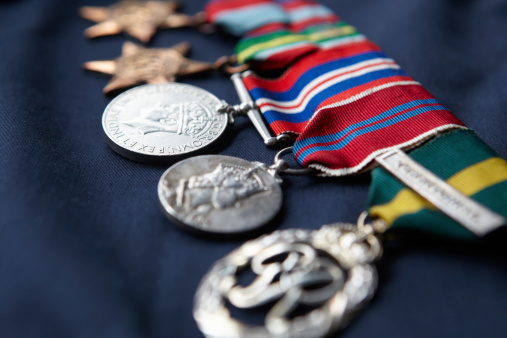The amount of scandals at the Department of Veterans Affairs (VA) keeps piling up, with the number of veterans waiting longer than a month for medical attention now 50 percent higher than it was one year ago.
According to the VA, some of its hospitals may have to close if the agency can’t get an additional $2.5 billion from Congress.
Dr. John Dale Dunn, an emergency services consultant and member of the civilian faculty at the Carl R. Darnall Army Medical Center in Fort Hood, Texas, says the problems at the VA are typical of government-run health care systems.
“Military hospitals are another example of bureaucratic mediocrity that provides no incentives for efficiency or proper care,” Dunn said.
U.S. Government Care Similar to Canada, Europe
Dunn likens the VA framework to single-payer, government-run health care systems in Canada and Europe.
“Doctors send their very sick patients to the emergency room and focus on attending to patients requiring less attention, just to finish their shifts,” Dunn said. “Given such circumstances, it’s certain rationing of expensive treatments will occur.”
Dunn says that process allows many veterans to game the system to receive free care for minor health problems not related to their military service, at the expense of veterans requiring more urgent care.
“If it’s free, some individuals will exploit it,” Dunn said. “The VA is a classic example of a program that has expanded and expanded while providing decreasing quality of care to those who require it most.”
Remove Bureaucratic Hoops
Jason Gay, a retired captain in the U.S. Army and former policy analyst at the Wyoming Liberty Group, agrees with Dunn’s assessment and says many patients suffer and even die because of the VA’s bureaucratic inefficiencies.
The Department of Defense and the VA complain loudly about the cost of caring for active duty service members and veterans, Gay says. He says the claim made by health care activists the VA and Tricare—a U.S. Defense Health Agency program providing civilian health care benefits to military personnel, retired military members, and their families—are good models for a national health care system is absurd.
“This seems to be based solely on the cost to the patient,” Gay said. “It does not take into account the level of additional cost borne by the taxpayers.
“If a national health care system were established based on the VA, we would see all of the negatives without the one perceived benefit: decreased costs,” Gay said.
If everyone is enrolled, there is no external group to pay for the cost overruns and defray costs for the patients, Gay said.
“We would see health care in the United States transition from the world’s primary center for research and development into a larger version of Great Britain’s National Health Service,” Gay said.
“Our version would probably be even more dysfunctional, as it would have significantly higher enrollment and span a much larger country requiring many more service locations and their requisite administrative personnel,” said Gay.
“The last thing Americans should ask for is for our health care system to be modeled on the VA,” Gay said. “The VA has largely failed the small segment of the population it was created to serve, despite the best intentions of many of the VA’s staff.”
Bruce Edward Walker ([email protected]) is a policy analyst for The Heartland Institute.
Internet Info
Nate Wilson, “Bipartisan Reform Proposed for Veterans Health Care,” Health Care News, March 23, 2015: https://heartland.org/news-opinion/news/bipartisan-reform-proposed-for-veterans-health-care
Anthony Brino, “Pressure Mounts to Overhaul Military Health Plans,” Healthcare Payer News, February 17, 2015: http://www.healthcarepayernews.com/content/pressure-mounts-overhaul-military-health-plans#.VaAASPlibIW
Sean Parnell, “Congressman: Privatize Some Veterans Health Services,” Health Care News, July 28, 2014: https://heartland.org/news-opinion/news/congressman-privatize-some-veterans-health-services https://heartland.org/news-opinion/news/congressman-privatize-some-veterans-health-services





